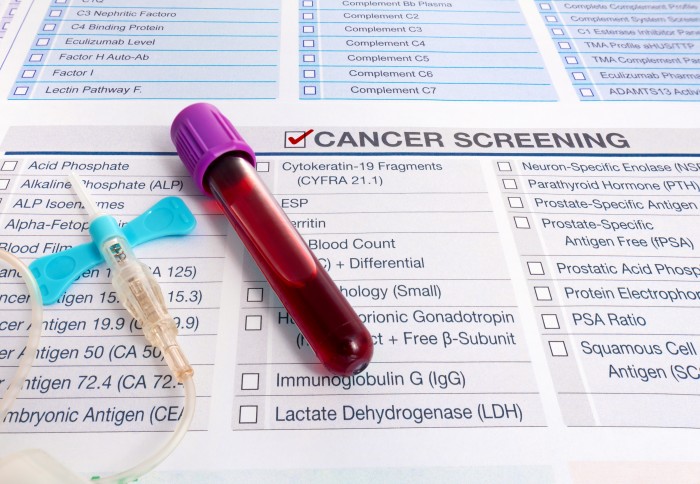Cancers and heart disease could be diagnosed more easily with new rapid test

Imperial researchers have built a new easy-to-use test that could diagnose non-infectious diseases like heart attacks and cancers more quickly.
The new test works by detecting molecular signals in the body called biomarkers, which are already used in things like COVID-19 testing where the presence of SARS-CoV-2 genes indicates COVID-19. There are also biomarkers for non-infectious diseases: for example, prostate-specific antigen (PSA) in the blood can sometimes act as a biomarker to indicate the presence of prostate cancer.
This technology could bring us a step closer to personalised diagnostics at home or at the GP surgery Dr Marta Broto
Diagnostic tests based on RNA or DNA often require controlled temperatures and involve multiple steps. The new test can be used at room temperature in a user-friendly process.
The researchers hope this could enable quicker and easier diagnostics in settings like GP surgeries, as well as in resource-limited clinics in developing countries.
The new test, called CrisprZyme, has been developed by a team of researchers led by Imperial College London, MIT, and Max Delbrück Center for Molecular Medicine in Berlin. They say the test could boost access to biomarker diagnostics. The results of preliminary lab studies of the test are published today in Nature Nanotechnology.
First author Dr Marta Broto, of Imperial’s Department of Materials, said: “As well as potentially boosting access to diagnostics in developing countries, this technology could bring us a step closer to personalised diagnostics at home or at the GP surgery. By making clinical diagnostic tests simpler, we will be able to provide clinicians with the right tools to test at the same GP surgery instead of having to reschedule for follow-up analyses and blood tests.”
CRISPR-inspired
CrisprZyme builds on CRISPR diagnostic tests, which use RNA – the messenger that helps create proteins – to detect biomarkers in biological fluids like blood or urine. In their current form, these tests detect RNA and then amplify this RNA by creating many copies so that the signal is easier to read.
However, these amplifying technologies must be temperature controlled to work, which requires expensive equipment. Additionally, although they tell medics whether an infectious disease is present, they cannot provide information about how much biomarker is present, which is important for monitoring non-infectious diseases like heart diseases and cancer.
CrisprZyme improves this technology by replacing the amplification process with colorimetric analysis – a method that determines the amount of biomarker present without the need for amplification. This eliminates the need for temperature control and additional steps, and can also reveal how much of a biomarker is present in a sample.
Senior author Professor Molly Stevens FRS FREng, of Imperial’s Departments of Materials and Bioengineering, said: “Our test, like others, indicates when a biomarker is present, but CrisprZyme is a simpler diagnostic than those currently available. What also sets it apart is that it can tell us just how much biomarker is present, which can help us not just with diagnosing a disease, but with monitoring its progress over time and in response to treatment.”
“Following further development and testing in the lab, we hope this could help take us a step closer to personalised medicine whereby treatment is tailored more specifically to patients’ needs.”
Using nanozymes
To eliminate the amplification step, the researchers used nanozymes – tiny synthetic materials that behave like enzymes. Their enzymatic-like activity increases the signal of the test making the colorimetric analysis easier to read.
The technology does not quite remove all the steps, as the sample must still be treated with chemicals to extract the desired biomarker before it’s run through the test. The researchers are continuing to upgrade their technology by studying alternatives for sample treatment to make it even more user-friendly.
This work was funded by the British Heart Foundation, the EPSRC IRC in Early Warning Sensing Systems for Infectious Diseases (i-sense), the Department of Defense Prostate Cancer Research Program, the Royal Academy of Engineering, and the Rosetrees Trust.
-
“Nanozyme-catalysed CRISPR assay for preamplification-free detection of non-coding RNAs” by Broto et al., published 4 August 2022 in Nature Nanotechnology.
Article supporters
Article text (excluding photos or graphics) © Imperial College London.
Photos and graphics subject to third party copyright used with permission or © Imperial College London.
Reporter
Caroline Brogan
Communications Division